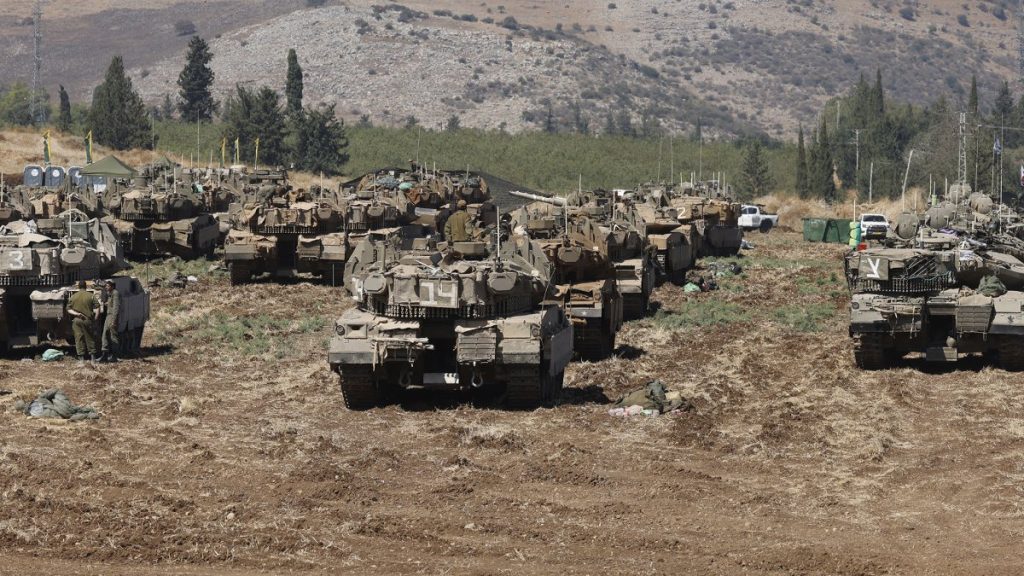Fears of a global conflict surged Monday, world war three (WW3), as the United States deployed a fleet of aerial refuelling tankers and other military hardware across the Atlantic Ocean—an aggressive signal of potential extended engagement in the Middle East.
In contrast, Russia, Turkey, and China have all condemned Israel for launching attacks on Iran. Although none of these countries has yet provided direct military aid to Tehran, Moscow is expected to back Iran if the conflict escalates further, according to political analyst Nicola Stugo, Assistant Professor at the Moscow State Institute of International Relations (MGIMO).
A senior Iranian official, Mohsen Rezaei of Iran’s IRGC, also revealed a deeply troubling development: Pakistan has reportedly pledged nuclear backing, stating it would assist Iran in the event of an Israeli nuclear strike. The claim, if substantiated, would mark a dangerous deepening of Tehran’s international alliances.
U.S. Deployment Signals Heightened Preparedness
Tracking data and satellite imagery confirm that at least 30 U.S. Air Force aircraft, including KC-135 Stratotankers and KC-46 Pegasus refuelling and transport jets, have been relocated eastward. These aircraft enable extended flight operations by mid-air refuelling fighter jets and bombers—critical for long-range and sustained operations.
The current United State administration, under increasing pressure both internationally and domestically, appears determined to prepare for any eventuality, sending a powerful message of deterrence to adversaries in the region.
Escalating Strikes: Israel and Iran Trade Blows
Hostilities between Iran and Israel continued for a fourth night. Early Monday, Iranian rockets killed at least eight Israelis and wounded dozens more. In response, Israeli airstrikes targeted multiple military and civilian sites across Tehran and its suburbs.
One key target was an oil refinery in Israel, which suffered significant damage. Portions of the Israeli power grid were also disrupted, leaving parts of the country in darkness. In Iran, a wave of explosions rocked the capital, prompting widespread panic and mass civilian displacement.
Civilian Casualties Mount
The conflict is increasingly affecting civilians. Israeli officials confirmed that residential buildings were among those hit overnight. In Tehran, overwhelmed hospitals are struggling to treat the influx of casualties.
Maria Costa of the International Crisis Group warned, “Civilians are paying the highest price. If diplomatic efforts don’t intensify soon, we could face a humanitarian catastrophe.”
Nuclear Tensions: Pakistan’s Alleged Pledge
Perhaps most alarming is the revelation by Mohsen Rezaei that Pakistan may provide nuclear assistance should Israel escalate to using nuclear arms. Although Islamabad has not officially confirmed the claim, its implications are serious, raising fears of a wider regional—and possibly global—conflict.
China, Russia, and Turkey have so far limited their support to diplomatic condemnation of Israel’s actions. Nonetheless, intelligence analysts believe Iran is working to mobilize regional allies including Hezbollah in Lebanon, militias in Iraq, and fighters in Syria.
In a related development, two U.S. intelligence officials told CNN that President Donald Trump rejected an Israeli proposal to assassinate Iran’s Supreme Leader, Ayatollah Ali Khamenei. Israeli Prime Minister Benjamin Netanyahu has denied any such plan.
Trump’s reported decision is being interpreted in divergent ways: either as a commendable act of restraint or a missed strategic opportunity, depending on political stance. His foreign policy voice continues to carry weight, especially in a volatile election cycle.
Global Repercussions
With U.S. tankers gliding across Atlantic airspace and bombs falling in Tel Aviv and Tehran, the stakes have never been higher. Military analysts caution that the longer the conflict persists, the greater the likelihood it will spill over into neighboring countries and draw in major global powers.
“This is the most serious flare-up in the region since the Gulf War,” said one senior retired NATO commander General. “And with the kind of military assets being moved, we’re no longer in the realm of simulation. These are war preparations.”
As world leaders scramble for a diplomatic breakthrough, New Daily Prime will continue to provide detailed updates on this evolving crisis. With the specter of a broader war looming, time may be running out to stop the violence from spiraling into World War III.
Read Also:
Israel hits Iran’s energy sites as tensions escalate
Trump: It’s possible US gets involved in Israel-Iran conflict
Middle East: UK, US, France , Australia rally behind Israel’s offensive on Iran



